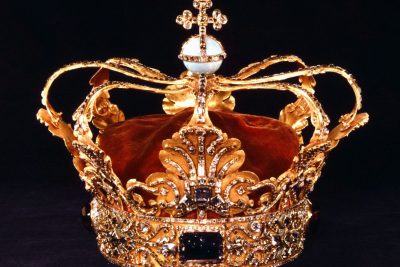
Turkey: What Can You Tell Us About Its Country and People
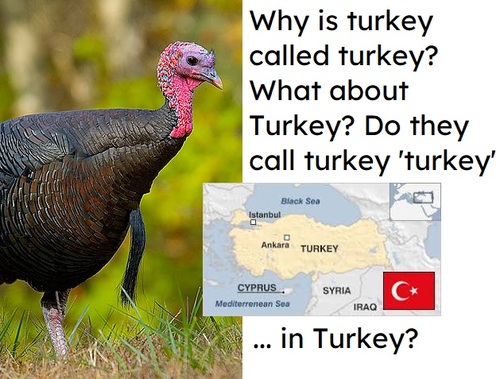
Turkey is a remarkable country that bridges Europe and Asia, offering a rich tapestry of history, culture, and diversity among its people. Known for its unique blend of Eastern and Western influences, the Turkey country stands out not only for its stunning landscapes and historical sites but also for its vibrant communities. The Turkish people, with their warm hospitality and diverse traditions, add to the allure of this fascinating nation.
As a land steeped in ancient history and cultural significance, Turkey plays a pivotal role on the world stage. From the grandeur of its empires to the resilience of its people, Turkey’s citizens have shaped the region’s development and identity over millennia. Whether exploring the bustling bazaars of Istanbul or the serene coastlines of Antalya, understanding the essence of Turkey requires an appreciation of its complex cultural heritage and the incredible stories of its people.
Historical Background
The history of Turkey dates back to ancient times, with evidence of human settlement in the region for tens of thousands of years. Over the centuries, various civilizations have thrived in this fertile land, including the Hittites, Phrygians, Urartians, and, most notably, the Greeks and Romans. The Ottoman Empire, which lasted from the 14th century until the early 20th century, was a dominant force, leaving a profound impact on the culture, architecture, and social structure of modern Turkey.
Following World War I and the eventual dissolution of the Ottoman Empire, the Republic of Turkey was founded in 1923 under the leadership of Mustafa Kemal Atatürk. Atatürk implemented a series of radical reforms aimed at modernizing the country, emphasizing secularism and national identity while promoting universal education and synchronized legal systems. The emergence of Turkey as a modern republic has influenced its dynamic contemporary society, shaping the identities of the Turkish people we see today.
Geographic Overview
Geographically, Turkey is unique, situated at the crossroads of Europe and Asia. The country spans more than 783,000 square kilometers, surrounded by eight countries: Greece and Bulgaria to the northwest, and Georgia, Armenia, Azerbaijan, Iran, Iraq, and Syria to the east. The coastline along the Aegean, Mediterranean, and Black Seas adds to the country’s natural beauty, offering a variety of landscapes from mountains to plains.
Turkey’s diverse geography contributes significantly to its climate and biodiversity. The region experiences different climatic zones, including Mediterranean, continental, and oceanic climates, affecting everything from traditional food to agricultural practices. The stunning natural sites, such as Cappadocia's fairy chimneys and Pamukkale's thermal pools, highlight the country’s unique geographic placement and allure.
Ethnic Composition
Turkey is home to a rich mosaic of ethnic groups, with the majority being Turks, who make up approximately 70-75% of the population. Other significant ethnic minorities include Kurds, Arabs, Zaza, and Laz among others. Each group contributes to the vibrant cultural landscape of the country, promoting a sense of unity and diversity among the Turkey country people. The coexistence of various ethnicities fosters a unique social fabric that enriches Turkey’s national identity.
The Kurdish population, primarily concentrated in the southeastern region, has played a crucial role in shaping the socio-political landscape. Language and cultural preservation efforts among ethnic minorities continue to emerge, highlighting a desire for inclusion and recognition within the broader Turkish identity.
Language and Communication
The official language of Turkey is Turkish, a member of the Turkic language family. It is the most widely spoken language, used in government, education, and media. Other languages, such as Kurdish and Arabic, are also spoken by various ethnic groups, reflecting the country’s diversity. The linguistic heritage showcases the rich history of the region and its interactions with various cultures throughout the ages.
Communication in Turkey is marked by a blend of formality and warmth. The use of gestures, eye contact, and polite expressions is common, showcasing the Turkish people's emphasis on hospitality. Understanding these social nuances is key to fostering genuine connections with the locals, making any visit to Turkey an enriching experience.
Cultural Heritage
Turkey's cultural heritage is a unique blend of ancient traditions and modern influences, characterized by its artistry, music, dance, and literary forms. The country has a rich tapestry of cultural practices, from the intricate designs of Turkish carpets to the vivid folklore surrounding folklore and legends. The arts thrive in Turkey, with various forms such as ceramics, calligraphy, and mosaic work reflecting the historical depth of the nation.
Measuring the impact of Turkey's cultural heritage goes beyond visual arts; Turkish music and dance play a vital role in expressing national pride. Traditional folk dances, the mesmerizing melodies of the Turkish oud, and the haunting sounds of the Turkish flute resonate within Turkish homes and celebrations, showcasing their communal spirit and cultural identity.
Religion and Spirituality
Religion is an integral part of life in Turkey, predominantly guided by Islam. Approximately 99% of the population identifies as Muslim, with the majority practicing Sunni Islam. The presence of religious sites, such as mosques and shrines, is omnipresent, reflecting the deep intertwining of religious practices with daily life. While Turkey is officially a secular state, Islamic values shape many cultural traditions and social customs.
In addition to Islam, there are smaller religious communities, including Christians and Jews, whose histories intertwine with that of the Turkish Republic. Religious diversity contributes to the profound cultural complexity of Turkey, fostering a sense of tolerance and acceptance among its people.
Contemporary Society
Contemporary Turkish society is characterized by its youthful demographics, with a significant proportion of the population aged under 30. This youthful energy translates into a vibrant social culture with an emphasis on modernity and globalization. The rise of social media and technology has transformed how the Turkish people interact, consume media, and express their identities.
Despite the rapid modernization, traditional values and family structures remain vital in Turkish society. Relationships within extended families are commonly emphasized, demonstrating a sense of solidarity and support. The balance between tradition and innovation is reflected in various aspects of daily life, from food to fashion.
Economic Landscape
Turkey’s economy is one of the largest in the world, a mixed economy driven by industry and services. Key sectors include manufacturing, agriculture, tourism, and construction, showcasing the nation's ability to adapt and innovate amid global challenges. The country stands as a significant player in international trade, strategically located for connectivity with Europe, Asia, and the Middle East.
While showcasing numerous economic opportunities, Turkey also faces challenges such as inflation and regional instability. However, the resilience of the Turkish people, along with entrepreneurial spirit and government initiatives, paves the way for sustainable growth and development in the future.
Food and Culinary Traditions
The culinary scene in Turkey is both diverse and rich, reflecting the country’s unique history and geographic location. Turkish cuisine incorporates various flavors, cooking techniques, and ingredients influenced by Mediterranean, Middle Eastern, and Central Asian traditions. Dishes such as kebabs, mezes, and baklava showcase the thematic diversity of Turkey's food culture.
Food holds great importance in Turkish culture, often serving as a centerpiece for family gatherings and celebrations. Meals are typically accompanied by lively conversation and traditional music, emphasizing the communal aspects of sharing food. Additionally, regional specialties further enhance the culinary experience, allowing visitors to explore Turkey through its diverse flavors.
Traditional Clothing and Arts
Traditional clothing in Turkey varies significantly across regions, reflecting the country’s rich cultural heritage and natural elements. The attire often combines practical elements with elaborate designs, showcasing craftsmanship and artistic expression. For example, the yemeni shoes and beautiful embroidered garments are iconic aspects of traditional Turkish dress.
Arts in Turkey extend beyond clothing to encompass a variety of disciplines, including painting, sculpture, and theater. The whirling dervishes, who perform spiritual dances as part of Sufi traditions, show how the arts are intertwined with spirituality and cultural practices. Contemporary artists continue to build on this legacy, contributing to Turkey's dynamic cultural landscape.
Festivals and Celebrations
Festivals in Turkey are lively celebrations that showcase the country’s rich culture and traditions. Events such as Ramadan and Bayram (Eid al-Fitr) highlight communal prayers and festive meals, while national holidays like Republic Day commemorate the establishment of the Republic. The cultural richness is on full display during local festivals, where traditional music, dance, and crafts are celebrated.
These events foster community spirit, bringing together people from diverse backgrounds to honor shared values and traditions. Turkish weddings, known for their elaborate celebrations, are also significant life events that reflect the cultural practices of the people, emphasizing the importance of family and togetherness.
Challenges and Opportunities
Despite its rich heritage and promising potential, Turkey faces a range of challenges, such as political instability, economic fluctuations, and social inequalities. Environmental issues, notably concerning the protection of natural landscapes and biodiversity, demand attention as well. However, these challenges also present opportunities for change and growth.
The resilience and dynamism of the Turkish people can drive innovation and progress, fostering new solutions to address these issues. By harnessing the potential of youth, leveraging technological advancements, and embracing inclusivity, Turkey can aspire to remedy its challenges while showcasing the strength of its diverse populace.
Conclusion
In conclusion, Turkey stands as a vibrant country rich in history, culture, and the remarkable tapestry woven by its people. The Turkey country people represent a vast array of ethnicities, languages, and traditions, showcasing a harmonious blend of past and present. From its stunning landscapes and mouthwatering cuisine to its thriving arts scene and diverse religious practices, Turkey captivates the hearts of those who venture within its borders.
The journey through Turkey’s heritage offers a glimpse into the resilience and hospitality of its people, making it a must-visit destination. The fusion of ancient history and contemporary developments highlights the complexity of Turkey's identity, embracing both challenges and opportunities that lie ahead.
Did you find this article helpful? Turkey: What Can You Tell Us About Its Country and People See more here Education.
Leave a Reply

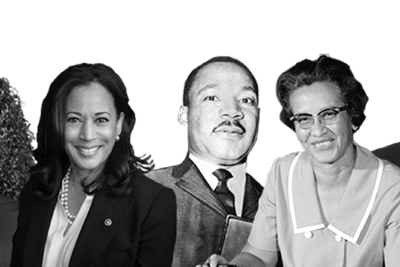

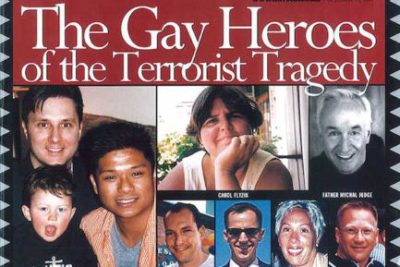

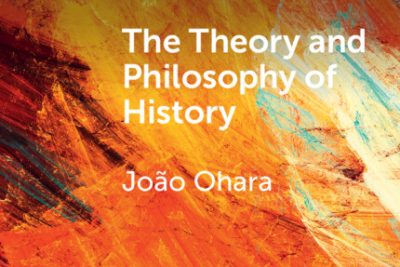
Related posts